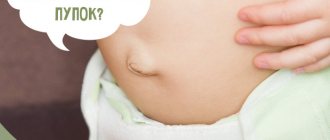If a child experiences itching in the eye area, he begins to reflexively rub or scratch them. Should I be worried about this? Symptoms such as rubbing and itching of the eyes are not always a cause for serious concern. However, in combination with other behavioral manifestations, these symptoms may indicate a pathology that has arisen and the need for consultation with a specialist. Of course, if your baby is tired and rubbing his eyes, most likely he just wants to sleep. If he has just woken up, God himself ordered him to wipe his eyes in order to better see his beloved mother. If during a walk a speck of dust is blown into his eyes by the wind, it’s okay. Simply rinse your eyes and your baby will forget about this trouble. But not all reasons are so harmless. Often, babies rub and scratch their eyes hard at night. Their sleep becomes restless, they sob, their fists tirelessly rub their eyes. Let's figure out why a baby's eyes may itch at night.
Why does a child rub his eyes?
Children have eye problems more often than adults. This is due to the imperfection of the immune system, which is unable to withstand certain factors:
- The most harmless reason why babies rub their eyes is fatigue. During wakefulness, the optic nerves are tense, causing the eyelids to gradually droop. To stretch the muscles around the eyes, the baby uses his fists. If the child yawns at the same time, he is overcome by sleep.
- Another reason why a child scratches his eyes is irritation caused by a foreign object. It could be an eyelash, a piece of hair, a speck, street dust, etc. They cause discomfort and cause the baby to pull his hands to his eyes.
- Incorrectly selected detergents, hygiene products, plant pollen, and a number of products provoke allergic reactions. In this case, not only the eyes will itch - the child may have a stuffy nose.
Allergic itching
- Insufficiently humid air, high body temperature, prolonged wakefulness and a number of other factors provoke dry eye syndrome. Therefore, when a child rubs his eyes, the reasons should be sought in the drying of the protective film. Rubbing the eyes increases lacrimation, which helps moisturize the cornea.
- Constant itching, accompanied by redness and discharge, is evidence of infectious inflammation affecting the conjunctiva. The disease is accompanied by swollen eyelids, redness of the eyeball, and fever.
Sometimes the cause of itchy eyes can be helminthic infestations that have penetrated with blood into the conjunctival area or have settled behind the lower eyelid.
When you shouldn't worry
If a newborn slightly rubs his eyes, showing signs of fatigue, these are normal physiological manipulations. In this case, there is no reason to worry; just put the baby to sleep.
There is no particular reason to worry when the factors that provoke irritation are easily removable. It is enough to remove products and products that cause allergies from everyday use, humidify the air in the room, and your baby’s eyes will stop itching.
Warning signs
If a child often rubs his eyes, is constantly capricious and cries, this is a reason to show him to the doctor. It's not just a speck or an infection that can cause concern. The cause of itchy eyes is inflammation of the middle ear or sinuses, as well as abnormalities in the functioning of the endocrine system.
Inflammation of the conjunctiva
Fever, increased temperature, redness and swelling of the eyelids, severe lacrimation and the presence of pus are signs that require immediate response.
Reasons for negative manifestations
Quite often, a child actively rubs his eyes and nose during the growth of his first teeth. Additionally, he becomes irritable and whiny. This picture is typical for a period from 4 to 8 months and is considered quite normal.
However, if suspicions have been refuted, then the search should continue. There is no danger in a behavior unless it occurs with noticeable frequency. Quite often the situation arises against a background of discomfort.
It can be triggered by the following factors:
- There is a small foreign body in the eye that scratches the surface. It may even be invisible without special magnifying equipment. However, the speck makes the child want to remove it. Against this background, he tries to touch his face as often as possible.
- If the baby rubs his eyes, the doctor will suspect he has a serious inflammatory process. This pathology is always accompanied by a state of discomfort and itching. During infancy, children have an increased risk of developing conjunctivitis.
- The allergic reaction causes severe dryness in the eye area. That is why the baby wants to scratch them. Antihistamines should be used to relieve symptoms. Today they are sold in the form of tablets, drops or suspensions. Among them, Lecrolin is very popular.
You can remove debris by wiping the eye with water.
Komarovsky about constant rubbing of the eyes
Why does a newborn roll his eyes when falling asleep or during sleep?
Discomfort makes the baby scratch its eyes. The more often this happens, the greater the risk of injury to the cornea. Dr. Komarovsky recommends that mothers distract the baby from the process even if the child is simply tired.
When the baby begins to yawn, you can pick him up and rock him a little. This will help the child calm down. As soon as the baby starts to wake up, here the mother will make sure that he does not pull his fists towards his eyes.
It is more difficult when the irritation is caused by a foreign body, worms, or inflammation. In this case, the itching can be so severe that the infant rubs his eyes until they turn red. If there are specks there, then the baby can scratch and injure the cornea with mechanical movements. This will become another factor for the development of the inflammatory process.
A child rubs his eyes, cries, cannot stop - how to help?
Effective eye washes
- First of all, the child needs to rinse his eyes with boiled water or tea infusion . This infusion is prepared simply: one gram of tea leaves should be placed in a glass of boiling water. Use regular tea – black. Cover the glass with a saucer and let it brew for about 30 minutes. Then, the ready-made solution needs to be strained.
- A decoction of medicinal chamomile is perfect for relieving inflammation and itching . 1 tsp Chamomile should be poured into 200 ml of cold water and boiled over low heat for about ten minutes. It is better to purchase chamomile collection at a pharmacy. Cool the broth and strain. The eye wash procedure itself is simple. To carry it out, you need to prepare a napkin and a sterile pipette. The child needs to be placed on his back, a decoction or infusion should be taken into a pipette, and a couple of drops should be carefully dropped into the inner corner of the eye. Then turn the baby's head so that the liquid flows to the outer corner. When the liquid has flowed out, the eye can be lightly blotted with a sterile cloth. After which, exactly the same procedure must be done with the second eye.
Of course, if the baby develops conjunctivitis , no amount of rinsing will help. If conjunctivitis is viral or bacterial, the doctor will prescribe the necessary medications belonging to the group of antibiotics. If the itching is allergic in nature, then antihistamines are used.
If a foreign body (for example, a speck) gets into your baby's eye, you can try to carefully remove it yourself. As a rule, a corner of a clean handkerchief is used for this. You need to act as carefully as possible so as not to cause even greater injury.
In ophthalmological practice, Albucid children's eye drops are widely used for bacterial infections These drops stop the proliferation of pathogenic microorganisms. In maternity hospitals, Albucid is instilled into all children immediately after birth. However, despite this, parents should definitely consult an eye doctor before using these antibacterial eye drops.
Children's eyes are defenseless, they look at us with hope and love. Any pathology not noticed by parents in a timely manner can lead to the most serious complications. Take care of your children's eyes!
Why is itching in the eyes and nose dangerous?
Why red eyes in a newborn baby - what to do
If a toddler not only rubs his eyes, but also has a stuffy nose, this is an alarming situation. Allergic rhinitis can appear in the first month of a child’s life. Not all parents are able to immediately recognize the problem, so the baby is first treated for ARVI.
When a child's eyes itch due to allergies, all the mucous membranes swell. Therefore, the nasal sinuses and the upper region of the larynx are involved in the process. Increased friction of the eyelids provokes copious secretion of tears. Some of the fluid leaks out through the sinuses, which are already clogged. All this makes breathing difficult and can provoke asthmatic syndrome.
Conjunctivitis is often of an allergic nature and is manifested by a severe burning sensation in the eyes. The child has to constantly scratch his eyelids, which leads to damage to the mucous membrane. As a result of disruption of the protective film, the conjunctiva becomes infected and the hair follicles become inflamed.
Advanced inflammation
Note! If purulent discharge appears in the corners of the eyes, we can talk about an advanced infection that was not paid attention to in a timely manner. In severe cases, the problem can develop into uevitis, blepharitis and even loss of vision.
Symptoms of eye irritation
Why do a child’s eyes fester, what to do, how to remove pus
To understand the reasons why a child’s eyes itch, you need to pay attention to the following points:
- how often does the child do this, what efforts does he make;
- is it related to sleep or not;
- whether it is accompanied by other symptoms.
If itchy eyes are not caused by muscle strain, then any irritation is necessarily accompanied by additional symptoms. Their combination will help determine what exactly makes the little one pull his hands to his eyes.
Characteristic symptoms
| Possible reasons | Signs of irritation accompanying itching |
| Foreign body | The presence of a foreign object in the eye is indicated by: • profuse lacrimation; • frequent blinking; • mucus in the corner of the eye |
| Infection | The child’s eye not only itches, but also hurts. Therefore, the little one is overly capricious and will cry all the time. The following symptoms are added to the itching: • red swollen eyelids; • profuse tears; • presence of pus; • fever |
There's a speck in my eye
If irritation of the eye mucosa is caused by ophthalmological problems, diseases of the endocrine, digestive or nervous systems, other symptoms may appear:
- bright circles around the objects in question;
- double vision or blurred vision;
- "blind" viewing areas.
It is impossible to notice these signs from the outside, and a little person will not be able to tell about them until he is a year old. Therefore, to avoid serious problems, your little one should be shown to a specialist at the first sign of eye irritation.
Danger signs
If a child constantly rubs his eyes and has an obsessive desire for this process, then it is necessary to analyze other symptoms. Only a specialist in this field can do this correctly. He pays attention to the following signs:
- The presence of swelling and redness on the eyelids.
- Active lacrimation.
- Regular sticking of the eyelids.
In this case, it is imperative to figure out why the child is rubbing his face. These are usually clear symptoms of infection or inflammation.
The diagnosis can be confirmed or refuted only after a detailed examination.
Mommy must also pay attention to the following manifestations:
- If, in addition, the newborn constantly strains, then he is suspected of having problems with the gastrointestinal tract. Quite often a situation arises in which a large amount of gas accumulates in the stomach. Against this background, the baby shows his anxiety.
- During the examination, attention is also paid to the sugar content in the urine. The obtained indicators are compared with the normal ones, which are typical for a given age.
- If a child’s temperature additionally rises above 40 degrees, then it is necessary to call an ambulance. Perhaps the baby is suffering from a virus or infection.
When to take action
If your baby scratches his eyes while feeding or after a walk, it's time to put him to bed. In all other cases, it is necessary to find out the cause of the itching and try to eliminate it.
The selection of eye drops, ointments, antihistamines and other drug treatment is the prerogative of the doctor. Household members can only provide all possible assistance before contacting a specialist:
- It is advisable to remove any speck that gets into the eye immediately. To do this, the mother takes the following actions:
- washes his hands first;
- then washes the child's face;
- taking warm boiled water into a pipette, rinses the little one’s eyes;
- Taking a sterile napkin or cotton swab, use it to remove the foreign body.
How the eye is processed
Important! If an object caught in a child's eye is inaccessible, there is no need to make efforts to remove it. In this case, it is better to seek help from a specialist.
- Measures should be taken immediately when a crust appears in the corners of the baby's eyelids. It is removed with a sterile damp cotton swab.
- For dry eye syndrome, the air in the room is humidified using a special device or by placing containers of water in the room. The child is provided with plenty of fluids, and the eyes are washed with chamomile decoction.
- A compress made from tea bags helps relieve irritation.
If it is difficult to protect the baby’s actions and he continues to pull his hands towards his eyelids, it is advisable to put mittens on his fists. This way, the child will not be able to injure his eyes with his nails and will not introduce an infection into them.
The first measures that a mother should take to relieve itching in her baby’s eyes are not a reason to continue self-medicating. Having provided the little one with all possible help, they immediately go with him to the doctor or call the local pediatrician at home when the baby is in a feverish state.
What to do if a newborn scratches himself?
Hi all.
Today I will tell you what to do if a child scratches himself. First, let's figure out why this happens. If the baby is a newborn, only recently born, then he can scratch himself reluctantly, he does not have any deliberate actions in his head, he simply picks himself with his hands and, as a result, harms himself, especially his face. It may also be the neck, but the face suffers more.
Children are sometimes born with pretty decent nails. Although they are quite soft, but still when he scratches, these nails break and with the part that is closer to the root of the nail, he scratches his face.
This is not such a harmless procedure as it seems at first glance, because by scratching it can cause an infection. He touches everything around him and as a result he can scratch his face, and if he gets an infection there, then more serious diseases will have to be treated later.
If a newborn scratches, it's okay. He does not yet coordinate his movements, he can scratch himself, especially children starting at 4 months.
If they are very, very active, then when they fall asleep, they scratch themselves when they eat. That is
he can eat and pick at his face. Also, when you carry him in your arms and lull him to sleep, he may also pick his face before falling asleep. Or when he is lying down, he can move his hands and his face too.
When children are small, there is nothing wrong with this, it’s just imperfect movements.
If the child is older, starting from six months, then what is his scratching? Scratching is a way to attract the attention of adults. That is
when he scratches his face, mom sees and immediately comes running, begins to immediately treat him, applies some kind of antiseptic.
He likes it, he enjoys his mother’s attention, he wants his mother to run around for him, and his mother does all this. The child seems to be small, but he already understands something.
If the children are even older, then they may scratch to show some kind of dissatisfaction.
For example, he tries to make something, put it somewhere, stack construction sets on top of each other, or mold something out of plasticine, but he doesn’t succeed, or he took something out from somewhere and cannot put it back, put it in, put it down, then in this way he will show his dissatisfaction that he cannot do something. In these cases, he begins to get nervous and facial scratching may manifest itself in these nerves.
What do we have to do? You need to approach the child and explain. Do not shout under any circumstances, show how and what needs to be done, perhaps do it together with the child.
In this way, he simply shows his dissatisfaction with something that most likely does not work out for him.
Now let's talk about how to prevent this scratching. While the child is small, scratches are the best option. You buy scratch pads, put them on the baby’s arms, and when he drives, he won’t scratch his fingers or tear his face.
When we were in the maternity hospital, it was hot in the summer, we used translucent scratches, you could even see your fingers through them.
They are very light, at first he tried to touch the face, I was afraid that it would tear, and since the skin is very delicate, soft, thin, it will not be difficult to harm it.
Although we were born without nails, we didn’t have a manicure, but he still tried to pick and pick at himself, so we immediately bought scratches.
There are scratches that are more dense, they are made of cotton, in principle, we did not use them much with scratches. The thin ones were a little worn in the maternity hospital and at home, maybe for 2 months, I sometimes dressed him, there were such moments. They were of no use later.
You don't need a dozen scratches. Buy several pieces, the sizes are almost the same for all, there are no sizes. Very often we used suits in the maternity hospital, and then I bought them, there was a blouse with a collar.
There are those in bodysuits, and in little men, and just in blouses, vests, they have such cuffs that the handle is completely closed, almost the same scratch was obtained. If you have such blouses, then you don’t have to buy scratches.
If the child is small, then it helps save scratches very well.
If the child is older, six months or more, then, as I already spoke about hyperactivity, he shows it this way and scratches his face, that is, he unintentionally does this to himself due to the fact that he is very active. He needs to be calmed down.
You can calm it down either by bathing before bed in herbal decoctions (chamomile). And even with hyperactivity, regular massage and light rubbing help well. If you don’t know how to do massages, just lie the baby down, stroke his back, arms and legs calmly.
He will be pleased and his activity will decrease.
The main rule is to cut your nails on time. When cutting your nails, make sure there are no sharp corners. There should be no corners left if you cut straight, for example, on the legs.
Children’s nails should be cut in a semicircle on their hands so that there are no sharp edges.
It is not advisable to use nail files; when you rub, you can cause an infection, so try to use scissors to ensure that there are no sharp edges on the nails. When a child scratches, there will be no nails, no edges, and nothing to scratch the skin with.
We scratched ourselves, and now periodically, when he whines, he can rub with his hands, wounds appear periodically in the corners of his eyes and on his nose. He gets hit on the nose very often if he waves his hands or is nervous. I cut his nails on time, but he still messes up his face.
Most often this happens when he wakes up or falls asleep, starts picking at something, rubs his eyes, and as a result he scratches himself with his nail.
In principle, there is nothing terrible here, you just need to make sure that the wounds are shallow, so that he doesn’t pick at himself further, and if possible, prevent this. You should always cut your nails on time; if the child is small, then dress the scratches.
Source: https://zen.yandex.ru/media/id/5dbea5b7c31e4900b1cb5db3/chto-delat-esli-novorojdennyi-sebia-carapaet-5ddd1f29c429860a2f8e3d6c
Prevention methods
Children are not immune from inflammation of the conjunctiva or debris getting into the eye. Parents can reduce the risk of severe irritation of the cornea and mucous membranes if they adhere to a number of rules:
- make sure that the little one does not put dirty hands in his eyes;
- maintain hygiene regularly;
Newborn hygiene
- adhere to wakefulness and sleep patterns;
- they try to protect the baby from contemplating a working TV (monitor);
- find ways to protect the little one’s eyes from dust and debris during walks;
- select children's cosmetics and hygiene products taking into account the sensitivity of the body;
- Responsibly treat the diet of a nursing mother and the choice of products introduced into the baby’s menu;
- protect the baby from contact with animals from which the child can become infected with worms;
- treat colds in a timely manner so that rhinitis does not lead to inflammation of the eye mucosa;
- maintain the air humidity in the room where the baby is located at an optimal level.
Important! The main measure for preventing eye problems is regular examinations of children by specialists (pediatrician, neurologist, ophthalmologist, allergist).
Paying attention to your baby's health will help avoid discomfort caused by itchy eyes. If a problem occurs, do not fix it yourself. It is better to immediately show the little one to a specialist who will make the correct diagnosis and select therapy appropriate to the case.
What to do if your baby constantly rubs his eyes and nose: how to determine the cause
When falling asleep or waking up, the little one rubs his eyes with his fists, it looks touching. There are other situations, independent of sleep, when a child scratches his eyes. The reasons here can be both harmless and requiring attention. Sometimes the desire to scratch the eye is triggered by itching, which is a symptom of the disease.
Itchy eyes
Why does a child rub his eyes?
Children have eye problems more often than adults. This is due to the imperfection of the immune system, which is unable to withstand certain factors:
- The most harmless reason why babies rub their eyes is fatigue. During wakefulness, the optic nerves are tense, causing the eyelids to gradually droop. To stretch the muscles around the eyes, the baby uses his fists. If the child yawns at the same time, he is overcome by sleep.
- Another reason why a child scratches his eyes is irritation caused by a foreign object. It could be an eyelash, a piece of hair, a speck, street dust, etc. They cause discomfort and cause the baby to pull his hands to his eyes.
- Incorrectly selected detergents, hygiene products, plant pollen, and a number of products provoke allergic reactions. In this case, not only the eyes will itch - the child may have a stuffy nose.
Allergic itching
- Insufficiently humid air, high body temperature, prolonged wakefulness and a number of other factors provoke dry eye syndrome. Therefore, when a child rubs his eyes, the reasons should be sought in the drying of the protective film. Rubbing the eyes increases lacrimation, which helps moisturize the cornea.
- Constant itching, accompanied by redness and discharge, is evidence of infectious inflammation affecting the conjunctiva. The disease is accompanied by swollen eyelids, redness of the eyeball, and fever.
Sometimes the cause of itchy eyes can be helminthic infestations that have penetrated with blood into the conjunctival area or have settled behind the lower eyelid.
When you shouldn't worry
If a newborn slightly rubs his eyes, showing signs of fatigue, these are normal physiological manipulations. In this case, there is no reason to worry; just put the baby to sleep.
There is no particular reason to worry when the factors that provoke irritation are easily removable. It is enough to remove products and products that cause allergies from everyday use, humidify the air in the room, and your baby’s eyes will stop itching.
Warning signs
If a child often rubs his eyes, is constantly capricious and cries, this is a reason to show him to the doctor. It's not just a speck or an infection that can cause concern. The cause of itchy eyes is inflammation of the middle ear or sinuses, as well as abnormalities in the functioning of the endocrine system.
Inflammation of the conjunctiva
Fever, increased temperature, redness and swelling of the eyelids, severe lacrimation and the presence of pus are signs that require immediate response.
Komarovsky about constant rubbing of the eyes
Why does a newborn roll his eyes when falling asleep or during sleep?
Discomfort makes the baby scratch its eyes. The more often this happens, the greater the risk of injury to the cornea. Dr. Komarovsky recommends that mothers distract the baby from the process even if the child is simply tired.
When the baby begins to yawn, you can pick him up and rock him a little. This will help the child calm down. As soon as the baby starts to wake up, here the mother will make sure that he does not pull his fists towards his eyes.
It is more difficult when the irritation is caused by a foreign body, worms, or inflammation. In this case, the itching can be so severe that the infant rubs his eyes until they turn red. If there are specks there, then the baby can scratch and injure the cornea with mechanical movements. This will become another factor for the development of the inflammatory process.
Why is itching in the eyes and nose dangerous?
Why red eyes in a newborn baby - what to do
If a toddler not only rubs his eyes, but also has a stuffy nose, this is an alarming situation. Allergic rhinitis can appear in the first month of a child’s life. Not all parents are able to immediately recognize the problem, so the baby is first treated for ARVI.
When a child's eyes itch due to allergies, all the mucous membranes swell. Therefore, the nasal sinuses and the upper region of the larynx are involved in the process. Increased friction of the eyelids provokes copious secretion of tears. Some of the fluid leaks out through the sinuses, which are already clogged. All this makes breathing difficult and can provoke asthmatic syndrome.
Conjunctivitis is often of an allergic nature and is manifested by a severe burning sensation in the eyes. The child has to constantly scratch his eyelids, which leads to damage to the mucous membrane. As a result of disruption of the protective film, the conjunctiva becomes infected and the hair follicles become inflamed.
Advanced inflammation
Note! If purulent discharge appears in the corners of the eyes, we can talk about an advanced infection that was not paid attention to in a timely manner. In severe cases, the problem can develop into uevitis, blepharitis and even loss of vision.
Symptoms of eye irritation
A blood vessel burst in a child’s eye - possible causes, what to do
To understand the reasons why a child’s eyes itch, you need to pay attention to the following points:
- how often does the child do this, what efforts does he make;
- is it related to sleep or not;
- whether it is accompanied by other symptoms.
If itchy eyes are not caused by muscle strain, then any irritation is necessarily accompanied by additional symptoms. Their combination will help determine what exactly makes the little one pull his hands to his eyes.
Characteristic symptoms
Possible causesSigns of irritation accompanying itching
| Foreign body | The presence of a foreign object in the eye is indicated by:• profuse lacrimation;• frequent blinking;• mucus in the corner of the eye |
| Infection | The child’s eye not only itches, but also hurts. Therefore, the little one is overly capricious and will cry all the time. The following symptoms are added to the itching:• red swollen eyelids;• profuse tears;• the presence of pus;• fever |
There's a speck in my eye
If irritation of the eye mucosa is caused by ophthalmological problems, diseases of the endocrine, digestive or nervous systems, other symptoms may appear:
- bright circles around the objects in question;
- double vision or blurred vision;
- "blind" viewing areas.
It is impossible to notice these signs from the outside, and a little person will not be able to tell about them until he is a year old. Therefore, to avoid serious problems, your little one should be shown to a specialist at the first sign of eye irritation.
When to take action
If your baby scratches his eyes while feeding or after a walk, it's time to put him to bed. In all other cases, it is necessary to find out the cause of the itching and try to eliminate it.
The selection of eye drops, ointments, antihistamines and other drug treatment is the prerogative of the doctor. Household members can only provide all possible assistance before contacting a specialist:
- It is advisable to remove any speck that gets into the eye immediately. To do this, the mother takes the following actions:
- washes his hands first;
- then washes the child's face;
- taking warm boiled water into a pipette, rinses the little one’s eyes;
- Taking a sterile napkin or cotton swab, use it to remove the foreign body.
How the eye is processed
Important! If an object caught in a child's eye is inaccessible, there is no need to make efforts to remove it. In this case, it is better to seek help from a specialist.
- Measures should be taken immediately when a crust appears in the corners of the baby's eyelids. It is removed with a sterile damp cotton swab.
- For dry eye syndrome, the air in the room is humidified using a special device or by placing containers of water in the room. The child is provided with plenty of fluids, and the eyes are washed with chamomile decoction.
- A compress made from tea bags helps relieve irritation.
If it is difficult to protect the baby’s actions and he continues to pull his hands towards his eyelids, it is advisable to put mittens on his fists. This way, the child will not be able to injure his eyes with his nails and will not introduce an infection into them.
The first measures that a mother should take to relieve itching in her baby’s eyes are not a reason to continue self-medicating. Having provided the little one with all possible help, they immediately go with him to the doctor or call the local pediatrician at home when the baby is in a feverish state.
Prevention methods
Children are not immune from inflammation of the conjunctiva or debris getting into the eye. Parents can reduce the risk of severe irritation of the cornea and mucous membranes if they adhere to a number of rules:
- make sure that the little one does not put dirty hands in his eyes;
- maintain hygiene regularly;
Newborn hygiene
- adhere to wakefulness and sleep patterns;
- they try to protect the baby from contemplating a working TV (monitor);
- find ways to protect the little one’s eyes from dust and debris during walks;
- select children's cosmetics and hygiene products taking into account the sensitivity of the body;
- Responsibly treat the diet of a nursing mother and the choice of products introduced into the baby’s menu;
- protect the baby from contact with animals from which the child can become infected with worms;
- treat colds in a timely manner so that rhinitis does not lead to inflammation of the eye mucosa;
- maintain the air humidity in the room where the baby is located at an optimal level.
Important! The main measure for preventing eye problems is regular examinations of children by specialists (pediatrician, neurologist, ophthalmologist, allergist).
Paying attention to your baby's health will help avoid discomfort caused by itchy eyes. If a problem occurs, do not fix it yourself. It is better to immediately show the little one to a specialist who will make the correct diagnosis and select therapy appropriate to the case.
Source: https://kpoxa.info/zdorovie-pitanie/rebenok-cheshet-glaza.html









